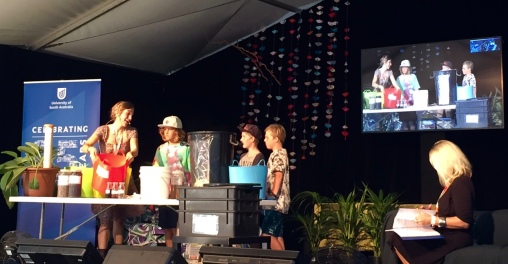The first open-access article I, along with Dr James Ward and Dr Barbara Koth published in 2017 was called, “Aquaponics in Urban Agriculture: Social Acceptance and Urban Food Planning”. It’s about the perception and social acceptance of aquaponics by urban food growers and Local Government Area in Adelaide, South Australia. A considerable amount of research has been conducted on the technology itself, but little has been done on how people (other than those who actually have such systems) feel about aquaponics. Additionally, the level of awareness and acceptance of local councils (in South Australia known as local government areas or LGAs) can influence either the support or restriction of aquaponics in urban areas.
Collectively our participants not only considered the various strengths and weaknesses of aquaponics, but also used their own experiences to recommend ideas for the possible adoption and expansion of aquaponics. These recommendations culminated in the idea of a set of scaled guidelines, including financial, logistical, resource requirements, and expected productivity for each potential scale of operation – from single backyard to large-scale commercial.
When the discussion moved to urban planning and the influence of local government areas, every participant alluded to a lack of council support for urban food production. There was a strong desire for a shift in current urban planning and that of state level government to better acknowledge and support urban food production of all kinds.
To read or share the full article, follow this link: Pollard, Georgia, James D Ward, and Barbara Koth. “Aquaponics in Urban Agriculture: Social Acceptance and Urban Food Planning.” Horticulturae 3, no. 2 (2017): 39.

















